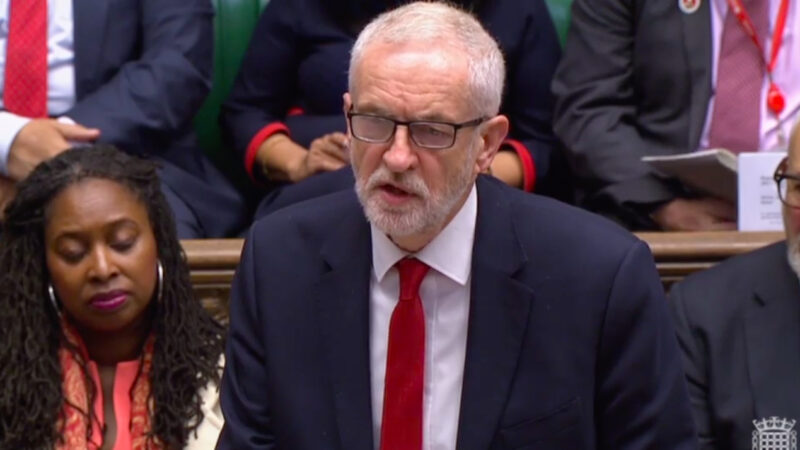
At the latest session of Prime Minister’s Questions, Jeremy Corbyn reiterated his priorities: picking apart the Brexit bill that has now been presented to MPs, before moving on to domestic issues where Labour is most comfortable. He asked, why did the Prime Minister have workers’ rights and other such commitments removed from the legally binding part of the withdrawal agreement? And why has he done a deal that damages the fabric of the union? Then he highlighted Tory privatisation of the NHS, and its costly consequences.
During only his second ever PMQs turn at the despatch box since becoming Prime Minister in July, Boris Johnson attacked his opponent over alleged support for the IRA and for Remain. Lines of attack against Corbyn similar to the former claim, an apparent lack of patriotism and so on, did not work in the 2017 general election and are unlikely to do so in the next one.
The latter accusation – that the Labour leader wants to block Brexit – aligns with the Tory electoral strategy of winning over Labour Leave voters, but consolidates the Labour vote in metropolitan areas and the Remain votes in Leave seats. This exposes the risk of the Conservatives’ plan for the snap poll: it could simply lead to low turnout, with Labour Leavers staying at home, yet not bolster their own support in seats such as North East Derbyshire while the Johnson effect makes Tory/Lib Dem marginals highly vulnerable.
Just how imminent, then, is this early general election? We’ve been talking about its immediate inevitably for months. Labour’s current position is specifically as follows: “As soon as the threat of no deal is off the table, we would support an election.” But no deal cannot be completely ruled out until a Brexit deal is passed – and even then there is the possibility of a 2020 no deal following the transition period. This is the basis for confusion among political journalists and commentators.
Richard Burgon made clear this morning that he is in favour of booting out the Tories before Christmas. Backbenchers such as Ben Bradshaw made clear in response that they weren’t up for that. From the latest briefing by Corbyn’s spokesperson, it would seem that Labour backing for an early election is still dependent on whether the EU grants an extension until January 31st – as requested under the Benn Act – or if something more complicated happens, in which case the party might have wiggle room to avoid a public vote. The ball is in the EU’s court.




More from LabourList
‘If Labour is serious about upskilling Britain, it must mobilise local businesses’
Stella Tsantekidou column: ‘What are we to make of the Labour Together scandal?’
‘Unitarisation risks weakening local democracy unless communities are put in the driving seat’